Russia vs NATO: What it takes to become an ELITE Spec Ops officer
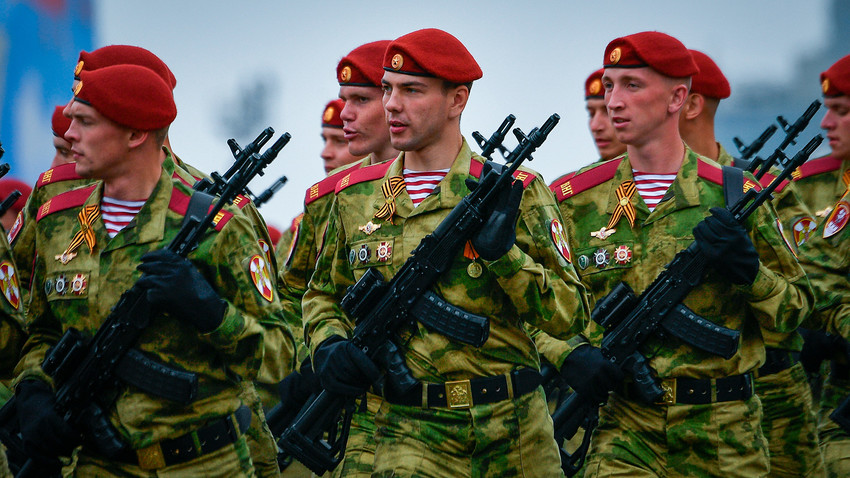
You wake up in the morning and understand that you can not stand your office life anymore. So you decide to drastically change your life and become not just a regular conscript, but an elite marine or airborne.
So what do you have to do to achieve this?
Most importantly, in order to become a member of
Russian Crimson Berets
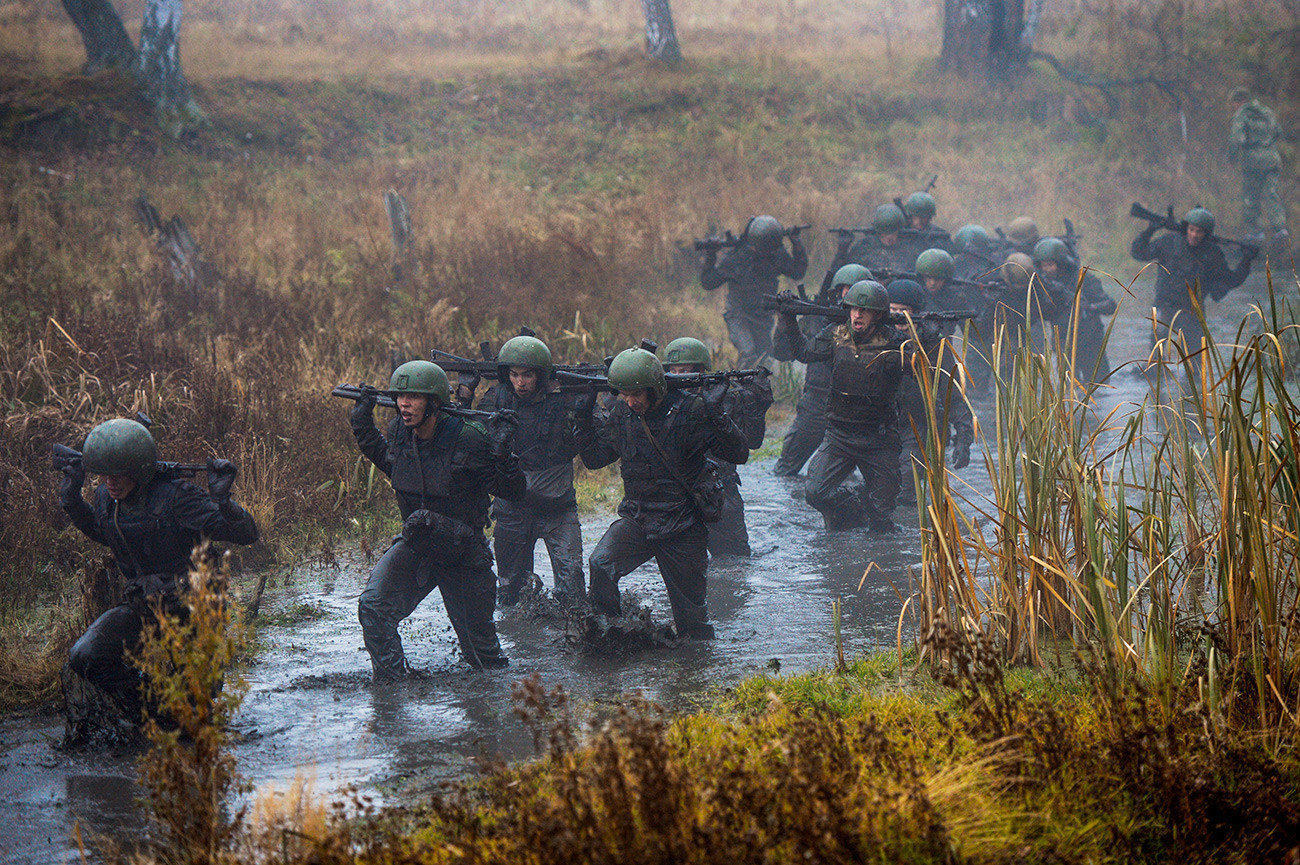
The crimson beret is a symbol of the elite Spec Ops officer in Russia. The right to wear it is earned through literally blood and sweat and those who wear them are the first in line to be sent to war zones or on
Those who desire a crimson beret have to pass three
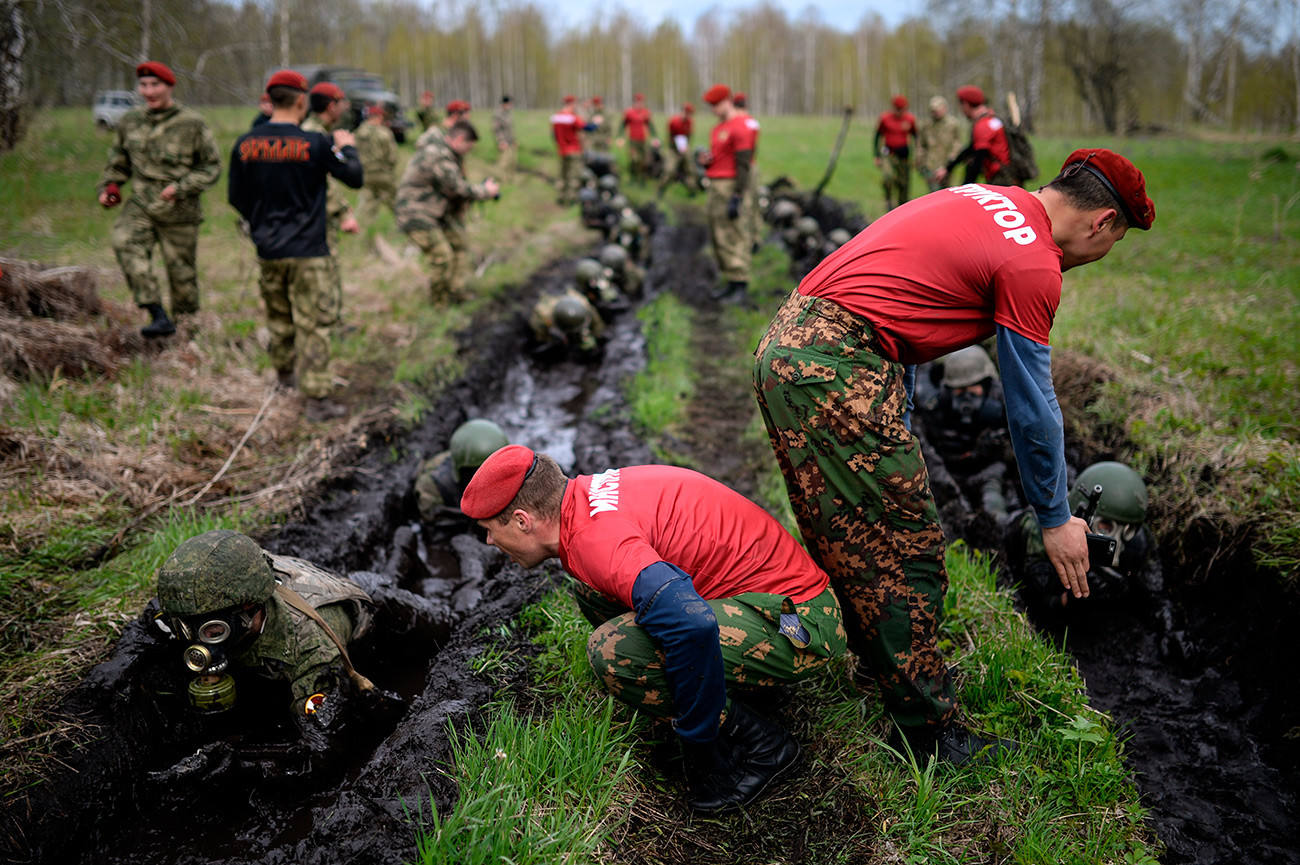
The first is a ten-kilometer cross-country run with a 60 lb (27 kg) backpack, an AK-74M rifle and a bottle of water on your belt. The point of the race is to overcome numerous land and water obstacles in full battle equipment, save enough strength to complete shooting exercises at a range, and finally, to fight 10-minutes straight with three experienced Spec Ops instructors.
The cross-country running stage will pass through swamps, rivers and forests in the middle of nowhere, where you will be taken with a group of 100 other candidates and a number of professional soldiers who will be throwing training grenades right at you and shooting the ground next to you to test your character and find out whether or not you’re able to complete a task on a real battlefield.
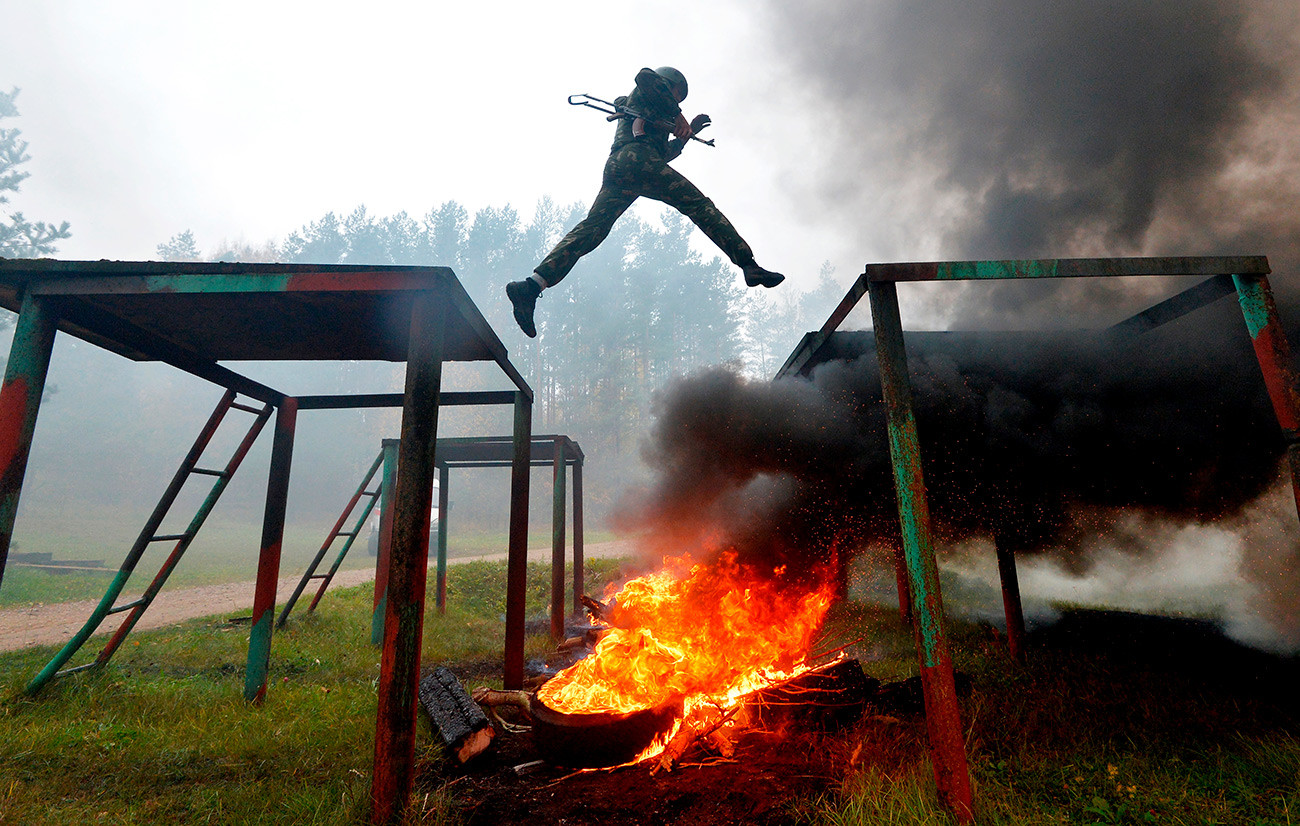
These “sadists” will be running alongside you, cursing and shouting at you. They will also whisper in your ears, phrases like: “You don’t need it!” “Give up!” “Just say a word and you’ll be taken back to the city to your warm bed!” This kind of intense psychological pressure is one of the essential parts of Spec Ops training all over the world that you have to pass if you really wish to become one of the toughest men on Earth.
After completing this run, a candidate has to go straight to a shooting range with the exact AK he’s been running with throughout the forest and shoot a number of targets. The key to this stage lies in the first stage - ensuring your rifle is clean after being dragged through swamps and woodlands and ready to shoot the enemy. So if your gun needs cleaning - you’re out.
Yet, if your rifle is impeccably clean and you successfully hit all designated targets at the range, then you’re taken to the last - and hardest - stage: a 10-minute MMA-style fighting session.
Trust me, this is the hardest part of this day-long entrance test, as by the moment you have to enter the ring you’re already about to pass out after tiresome and stressful challenges of the cross-country run and shooting
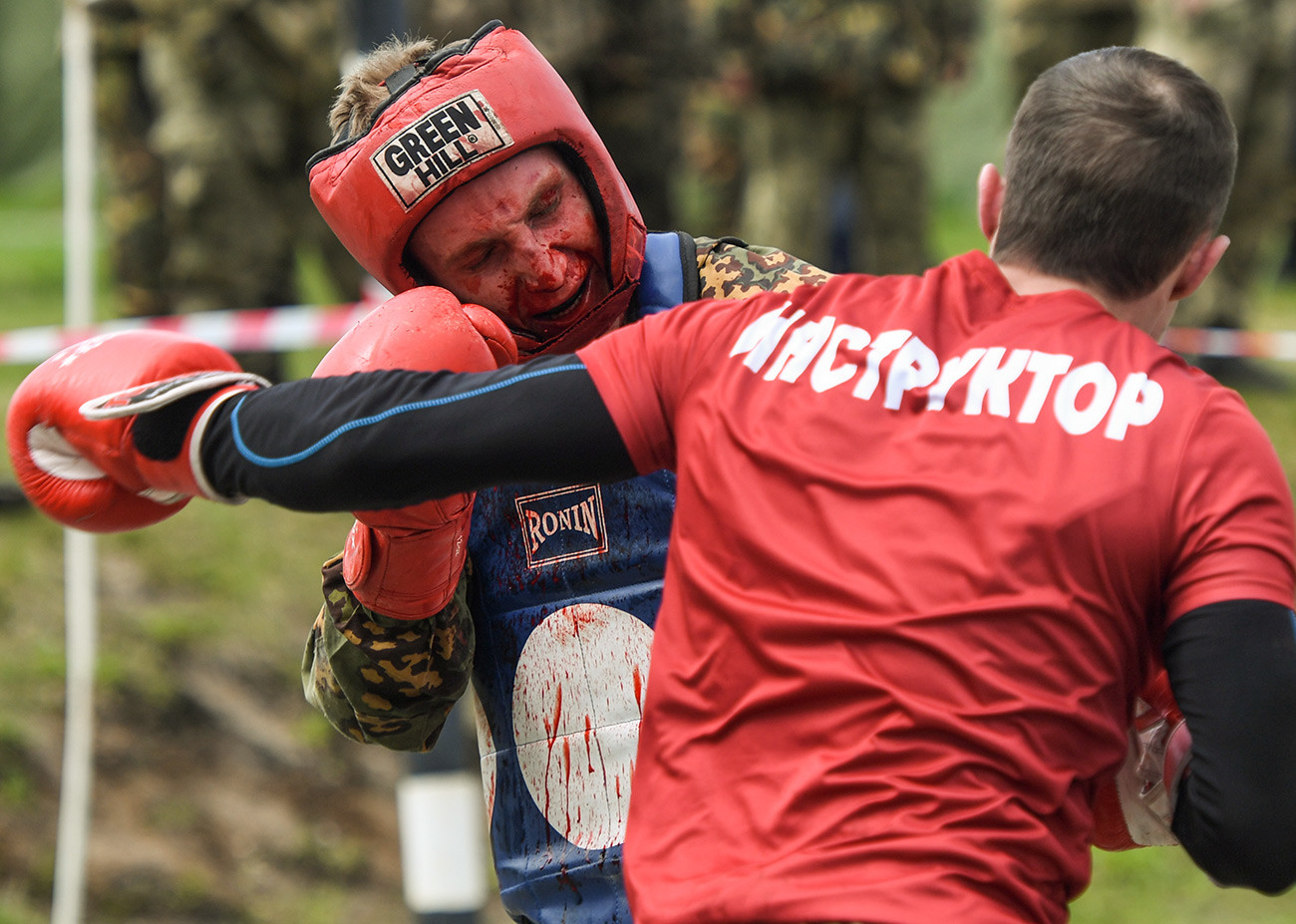
If you’ve withstood all this and are standing on your own two feet by the end of the tenth minute, you’re awarded the crimson beret and become a member of the elite Spec Ops “club”.
If you fail any part you’ll only be able to attempt it once more the following year.
British Special Air Service (SAS)
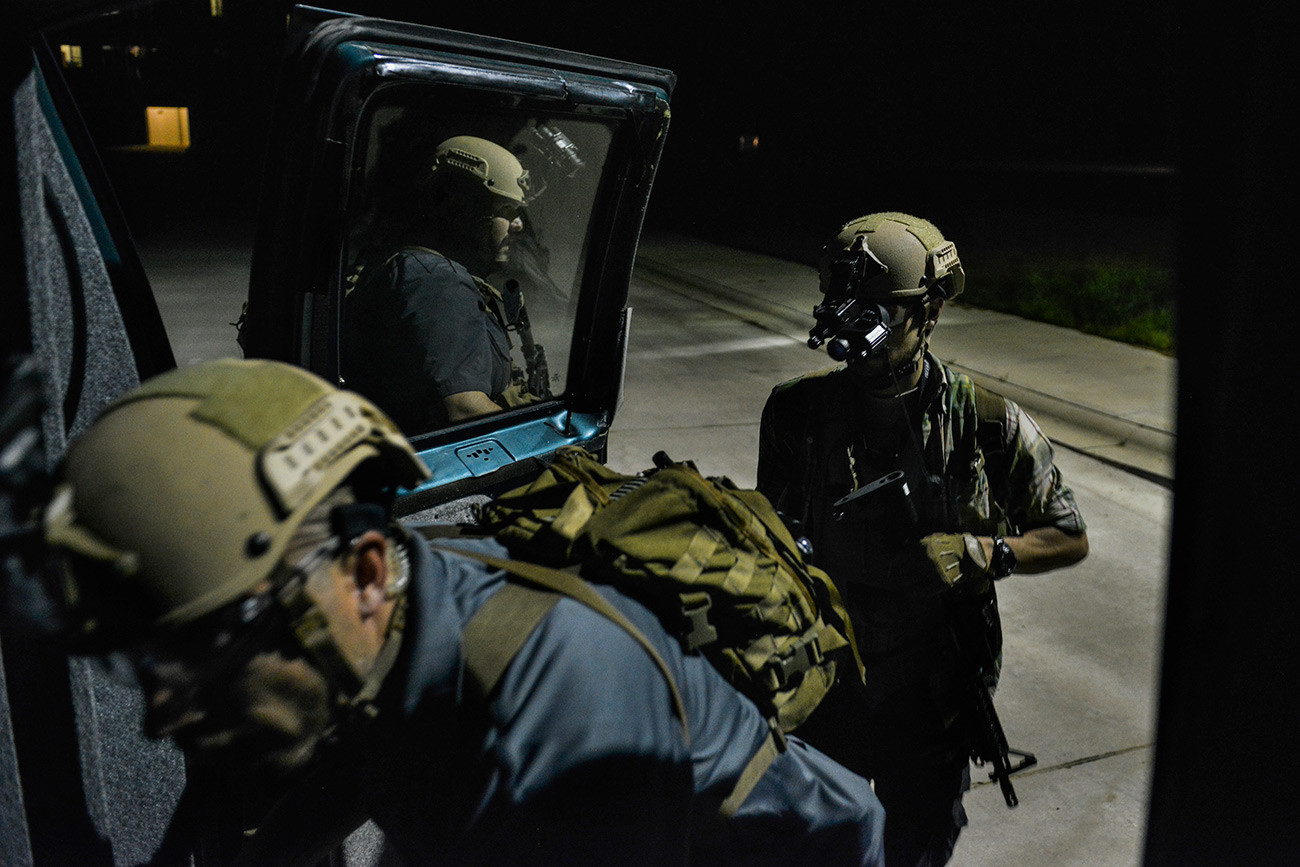
The motto of the SAS is “Who Dares Wins” and on the very first day of recruitment, instructors meet candidates saying: “We're not going to select the best of you. We’re going to try and kill you. And survivors will continue their education.”
Candidates are taken to a secret military base. There, their test starts right in the middle of the night, when
They have no idea where they are. There’s no map and nobody to guide them - just 100 infantrymen and police officers with dogs chasing after them. Their equipment also includes a 60 lb (27 kg) backpack, a rifle and a bottle of water. The goal is to make it back in less than 20 hours and not get spotted in the process.
Oh, and the locals in the area are ordered to report seeing any “strangers” to local police stations. This 40 mile (64 km) “marathon” has been called Endurance for a reason
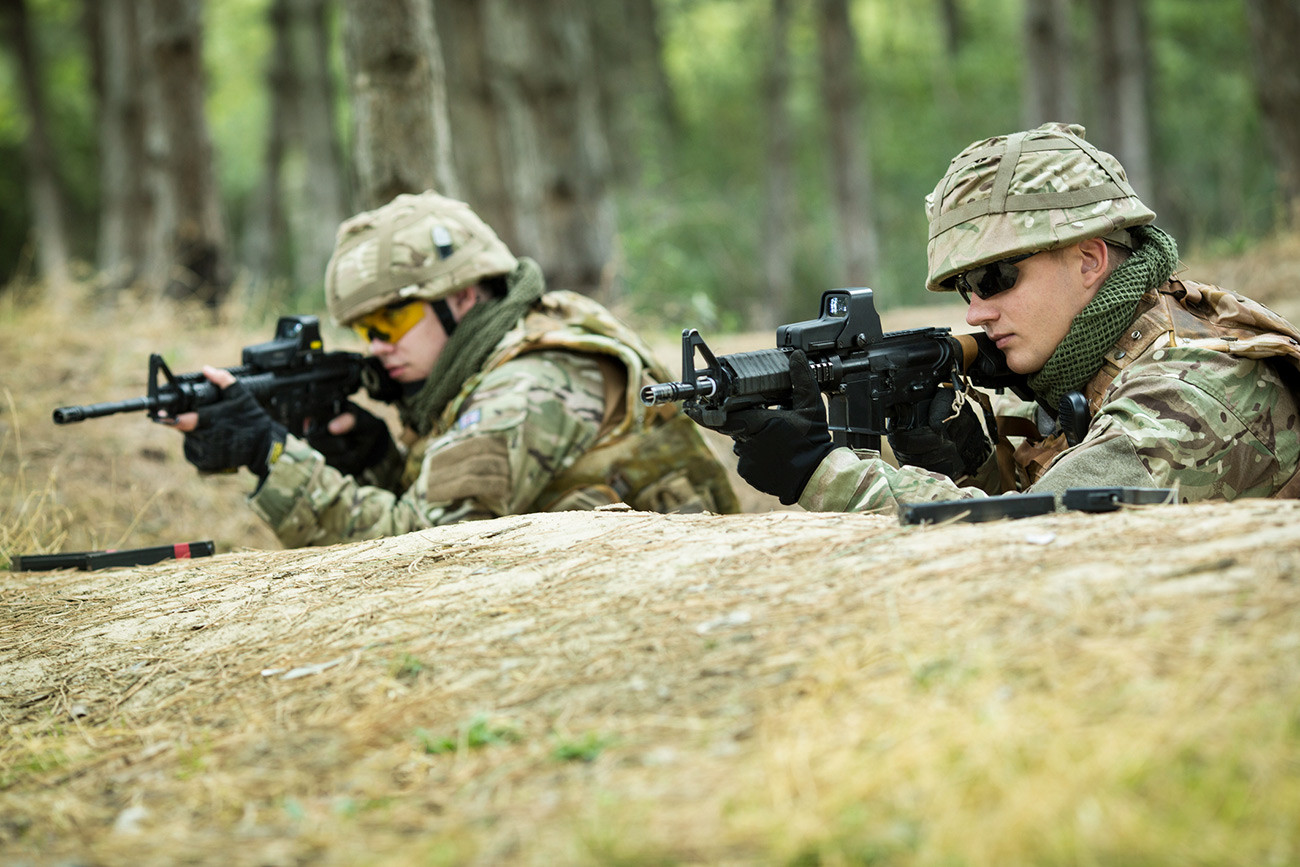
The candidates have to prove they are able to survive in any circumstances. And when you finally get caught, the officers take you in for interrogation.
They won’t break your fingers or put needles under your nails, but be sure they can tie you to a chair and beat the shit out of you until you break down and reveal the information they want from you. Passing this psychological test is essential for a SAS officer.
If you successfully pass the 40-mile run and interrogations, then you’re awarded the right to be named a SAS officer.
US Delta Force
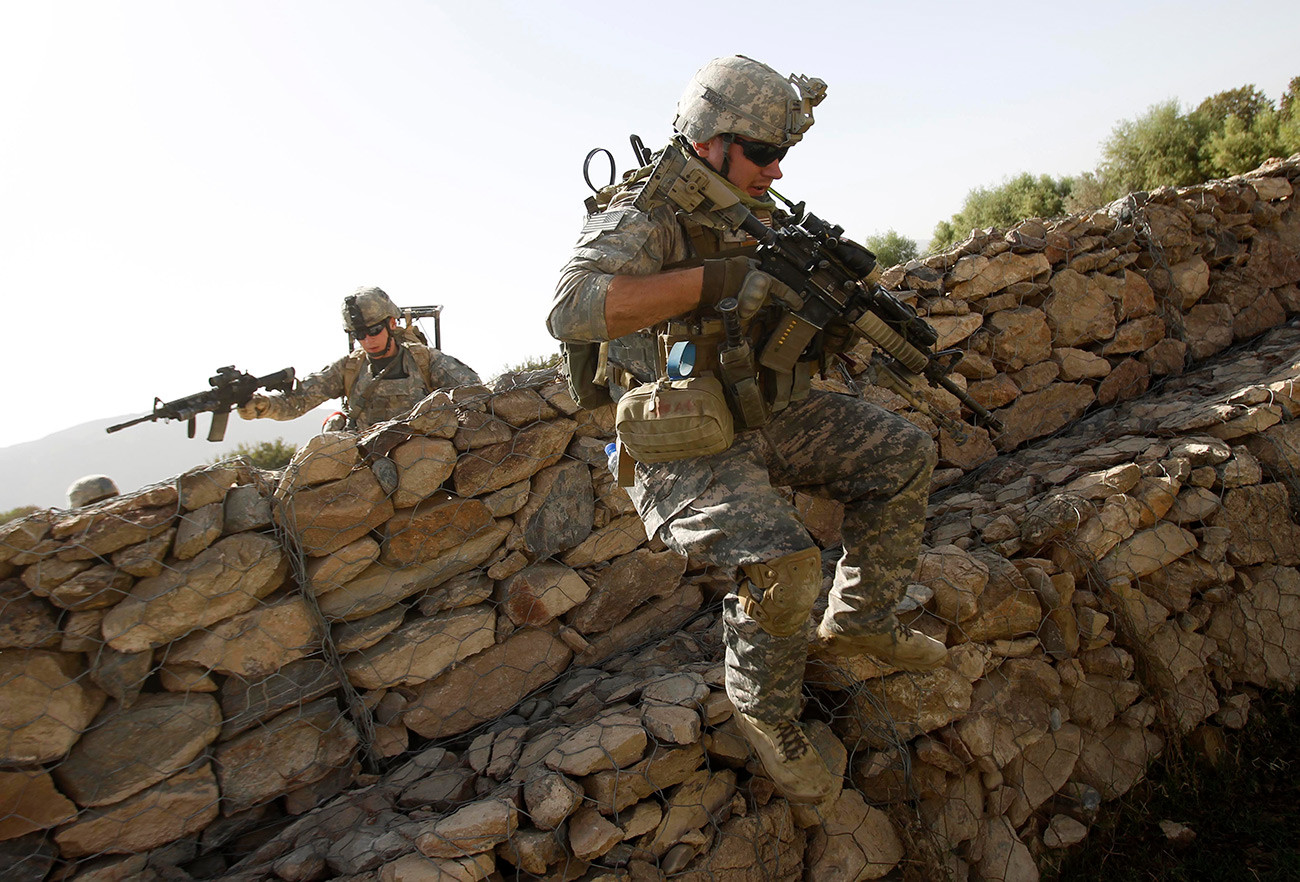
So the main focus of the Delta Force training camps is to “break you in order to make you stronger”. Delta Force has a very limited number of positions for candidates. So the training and selection process is not only about overcoming physical pain, but also about being stronger and better than the rest.
The course begins with testing candidates’ physical fitness. You have to do a number of physical exercises: run two miles within
There is
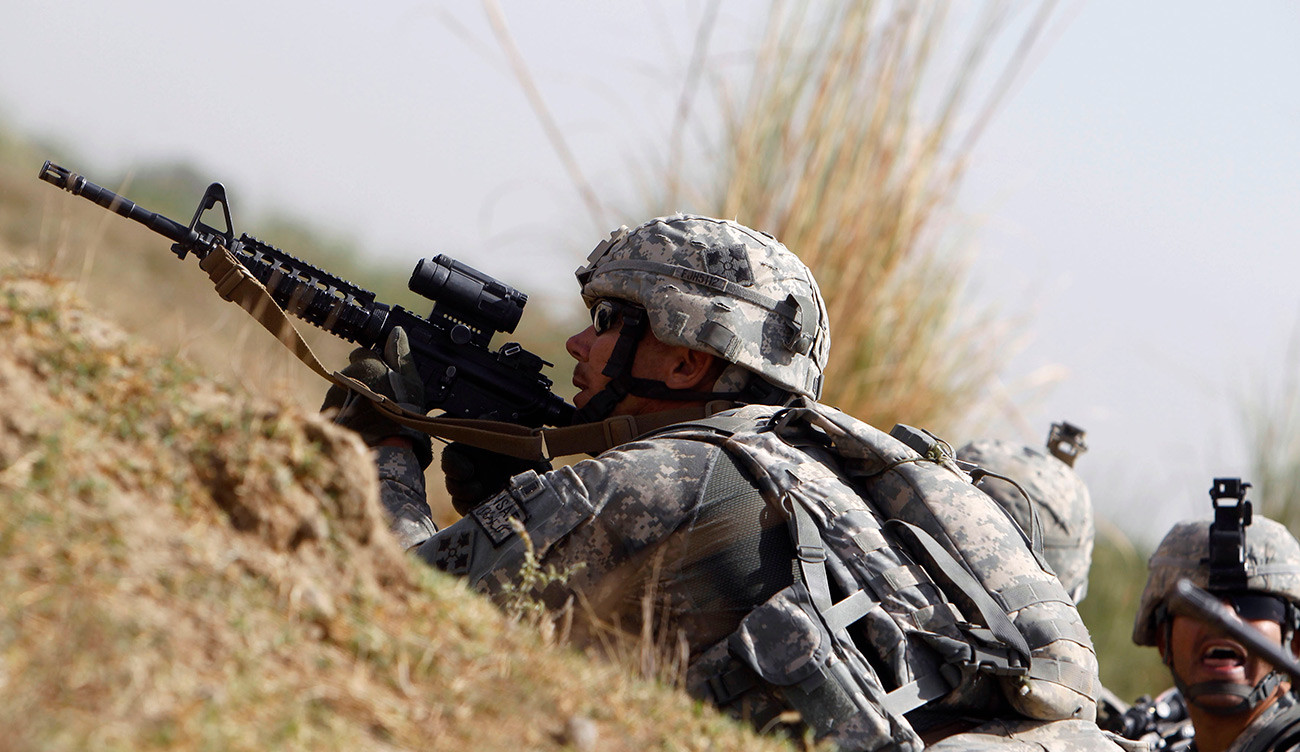
If a candidate successfully completes the first stage, they’re taken to a series of land navigation courses. They are similar to the ones British SAS candidates have to pass. Candidates are taken in the middle of the night to unknown terrain and have to walk 18 miles back to their base while carrying a 40 lb. (18 kg) backpack. These tests also have a time limit and if you exceed it - you’re out and all the
Once this navigation stage is complete candidates go to their final ‘pre-training’ challenge: a 40 mile run over extremely challenging terrain, this time with a 45 lb. (20 kg) backpack.
The exact time limits for each exercise are not known as they are kept secret and known only by the Delta command and officers in charge of the selection procedure.
If a candidate successfully passes all these stages they are taken for mental and physiological tests to determine how a person will behave in a dangerous environment and under fire in war zones.
Candidates who manage to successfully pass all these tests are finally sent on Operator Training Courses. These are intense training systems that last six months or even more to prepare a person for actual
To sum it up, Delta Force officers that surpass all these selection procedures and training courses become some of the most elite Spec Ops units in the world.
***
So which test is more badass in your opinion? Rush to the comments to have your say!
If using any of Russia Beyond's content, partly or in full, always provide an active hyperlink to the original material.
Subscribe
to our newsletter!
Get the week's best stories straight to your inbox